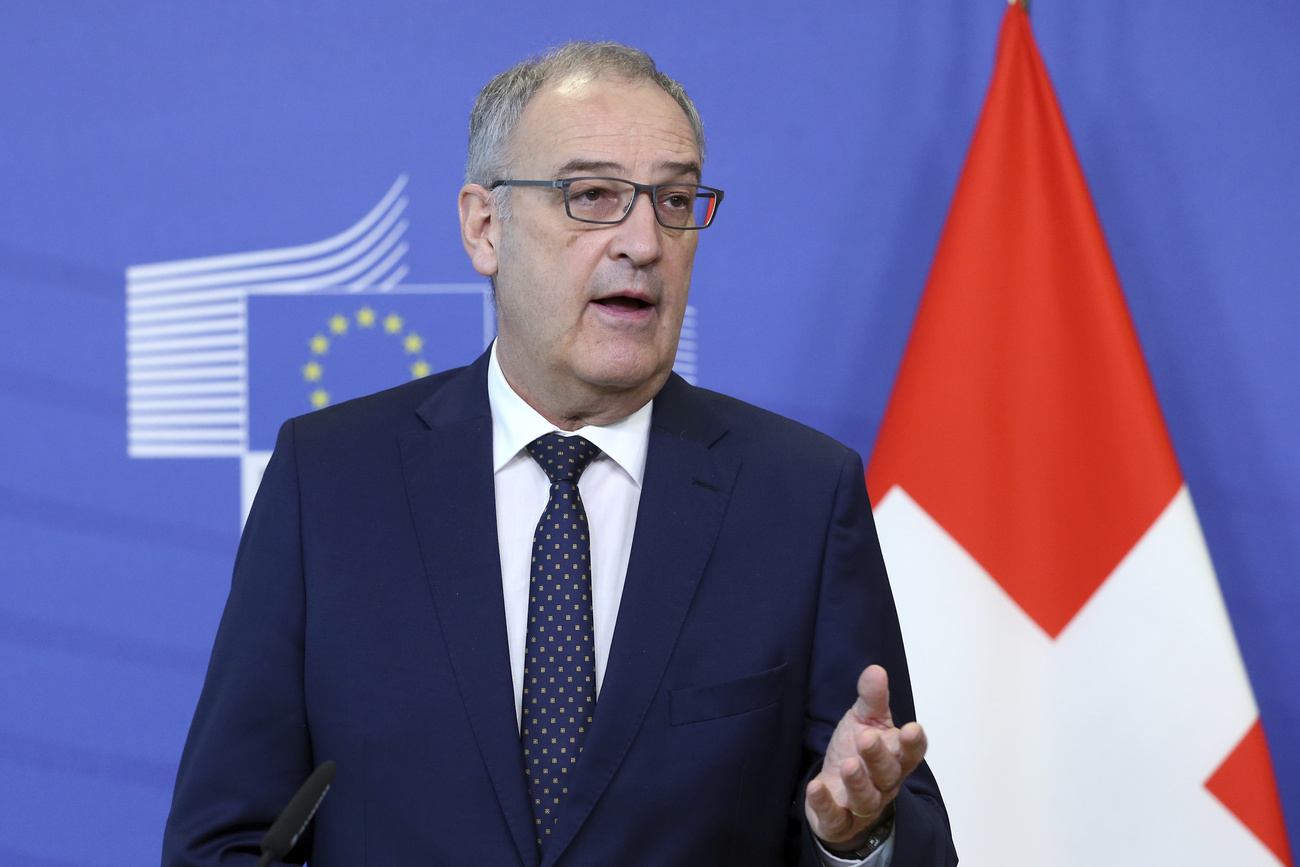
Swiss president: ‘Door not closed’ on Horizon Europe research

In an interview in the Schweiz am Wochenende newspaper, Guy Parmelin, who holds the rotating Swiss presidency, said that it would be “very unfortunate” but not surprising if Switzerland were classified as a third country in Europe’s flagship Horizon research programme.
His commentsExternal link on Saturday came after the European Commission launched the calls for project proposals for its €95 billion (CHF105 billion) research programme earlier this week. Switzerland was not on the provisional list of 18 non-EU countries eligible for Horizon Europe funding, pending negotiations on their full association to the programme. The UK was, for example.
“We, in the government, were aware that this risk existed when we decided to break off negotiations [on the framework agreement].” On May 26, Switzerland announced that, after seven years of negotiations, it was shelving a controversial institutional agreement on relations with the EU.
Following the end of negotiations, some in the Swiss scientific community, including Martin Vetterli, the president of the Swiss Federal Institute of Technology in Lausanne (EPFL), expressed concern about how the end of negotiations could affect research partnerships with Europe.
In an interview with SWI swissinfo.ch in early June, Vetterli said that if the country were to be cut off from what he referred to as the “Champions League of research”, there would be a real risk of losing competitiveness.
Parmelin noted that Horizon Europe is a research collaboration agreement and not a market access agreement. Therefore, he didn’t believe the latest decision by the European Commission was connected to the framework negotiations. He believes that the “door is not closed” but in the end, “it is a political decision of the EU” on Switzerland’s status in the programme, he said.
“Our goal remains full association with Horizon Europe. That is in the interests of all of Europe as a continent as a counterpart to North America or Asia.” He added that the government plans to continue funding EU research projects directly, with about CHF6 million.
Vetterli also responded to the latest news in an interview with Tamedia papers, saying that the fact that Switzerland was not included in the list of possible funding recipients was “very bad news”, particularly because the research programmes for 2021 to 2027 are still being set up.
As of June 24, more than 20 European research organisations had signed an open letterExternal link to Horizon Europe arguing that downgrading Switzerland would be a lose-lose situation for all parties given the country’s contribution to research and innovation.

In compliance with the JTI standards
More: SWI swissinfo.ch certified by the Journalism Trust Initiative





























You can find an overview of ongoing debates with our journalists here . Please join us!
If you want to start a conversation about a topic raised in this article or want to report factual errors, email us at english@swissinfo.ch.